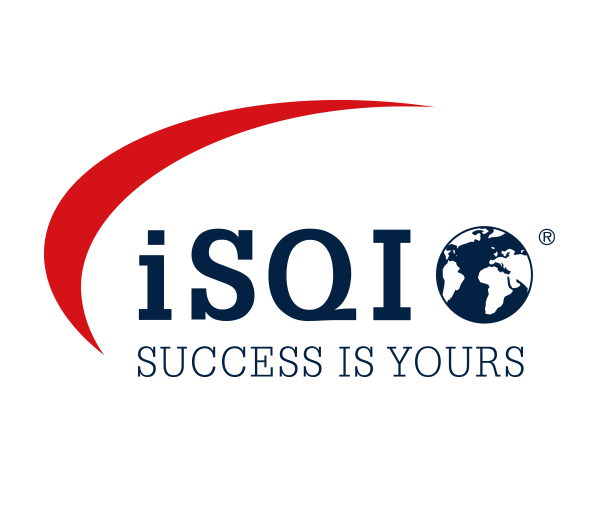Software development markets demand faster, larger, and more accurate software continuously. In most industries, these three elements represent a zero-sum game, where increases to one detract from the others. However, in software, emerging trends allow for innovations across the spectrum.
The new strategies in development, along with modern QA principles and advances in cloud infrastructure and technologies, are trending in a direction that seemingly has no intention of decreasing on any of these fronts.
Here are five of our most interesting QA trends for the coming years.
Software Quality Assurance Trends
To understand where things are heading, it’s valuable to know where they’ve come from. There are far too many trends to mention in this short article, but we’ve compiled five points based on topics currently in development and that have a trajectory to improve in the future.
Here are five QA trends we expect to see more of:
AI and Machine Learning
This isn’t exactly a new trend, but it looks like it’ll continue to impact many areas of software development in the near future. As it stands, the application of AI is still a primitive science, and many machine learning algorithms are still waiting for enough data to be trained.
As the applications and understanding of AI mature, expect to see it implemented for various challenges of software testing; to generate better test cases, data, scripts, and reviews.
AI has the potential and ability to identify the best possible times and methods of testing, predict faults before testing, and navigate tests by risk and speed. AI is already used to generating test cases based on the behavior of users, and gathering metrics from regression tests for monitoring, so look out for further developments in these areas.
With these predictions in place, let’s take a look at how these trends might benefit the next generation of software.
Test Automation
Test automation is growing in prominence, and for good reason. As many more manual tests are being replaced with automation, bottlenecks in production are fewer, and the capacity for continuous testing increases. In iSQI, we can see this growth in the significant demand for ISTQB® Certified Tester – Test Automation Engineer (CT-TAE), A4Q Certified Selenium Tester Foundation, and A4Q Foundation Level Tester For Appium.
The trends for automation suggest, at the very least, that regression testing will soon be almost entirely automated. While automated testing is becoming more familiar to teams, it’s still rather underused. As more experience in automation is shared, expect it to take off quickly, along with more advanced automation tools being developed.
Automation for mobile apps also looks to be more dominant. The pressure to release software more rapidly has led to better automation practices, and the integration between cloud-based device labs and automation tools looks set to improve soon.
Codeless Testing
A step up from standard automation is codeless testing automation, something which may become more popular in the coming months and years. Codeless testing offers several seemingly outlandish promises. However, it is forecast that the exponential growth of this testing method will increase at a CAGR rate of 15.5% in the next ten years.
Agile
While Agile as a methodology is set to benefit from all of the continuous trends on this list, the system itself is making headlines everywhere and is rapidly evolving and transforming, and there are some trends related to software development QA that are worth focusing on.
Agile seems set to transition even more toward cloud-based systems to preserve its lead. As always, Agile rewards creative, adaptive thinking, and this feels like something that will benefit companies ready to adopt cloud-based Agile systems in the future.
The continuous testing elements of agile development also look to expand in power. The success of continuous testing as part of an overall QA process has proven that it’s an effective method, which is set to continue.
Further, the agile process lends itself to other parts of the project. As Agile develops into more of a work ethic than just a basic development methodology, aspects of it are going to be considered for use in other departments for complex projects such as marketing and human resources.
DevOps
Another methodology set to benefit from current QA trends is DevOps, the market for which is projected to break the $20Bn mark by 2026. Like Agile, DevOps is continually evolving and adapting to new specifications.
Again, it’s expected that dependence on the ‘serverless’ architecture of the cloud will increase, allowing more focus on development and testing. In addition, a movement to less centralized architecture like microservices is highly probable, allowing applications to be arranged as a series of coupled services and helping to isolate individual components from errors in other areas.
.png?width=600&height=300&name=SOFTWARE%20QUALITY%20TRENDS%20Blog%20banner%20(1).png)
The Benefits of these QA Trends to Modern Software
Let’s dive deeper into each category to understand the advantages of each of these trends.
AI and Machine Learning
Much like automation, AI is set to continue improving the quality of software in the same way it has done so.
Another hidden benefit of more usage of AI will likely come from how data is gathered, mined, and arranged.
With more machine learning involvement, data storage and labeling will be analyzed with algorithms in mind. This should supplement the quality of data recorded and further empower future algorithms.
Ultimately, the merits of these trends to QA of the next generation of software will transpire from the improvements in time to market, accuracy, and production efficiency.
This means software should be getting better, faster, and more complex all at the same time.
Test Automation
This one’s an obvious one; test automation continues to escalate all areas of quality assurance software quality. The same thing that’s made test automation so useful in development is the very thing that’s set to continue in the future, faster tests, a multitude of more tests, and better outcomes for all involved in a project.
Codeless testing
Codeless testing comes with a wealth of immediate advantages.
Firstly, complex automation testing becomes accessible to testers with no prior programming knowledge because testing is codeless
The availability of human resources when it comes to testing receives a significant boost. This is true for testing itself but also for feedback cycles for review. Testers can also execute immediately, and there’s almost no learning curve needed, as opposed to the requirement of testing and coding protocols in older methods.
Agile
As always, developments in Agile translate to improved quality, reduced costs and quicker time to market. But further improvements to moving to cloud architecture will also focus on enhancing the satisfaction ratings by freeing up more time to spend on user experience.
Continuous testing improvements will undoubtedly lead to swifter feedback and bug detection. In addition, adopting the Agile philosophy in other areas of companies will lead to intelligent breakdowns of other complex internal processes and iterative procedures that can be effectively monitored and perfected.
DevOps
The adoption of serverless computing in DevOps will streamline the entire software lifecycle. It also decreases the workload for developers to focus on quality development rather than keeping up to date with tedious tasks.
The microservices architecture allows for decentralized innovations, where teams can control their part of the project and should promote quicker release times and resource allocation in general.
Conclusion
All of the software quality assurance trends mentioned accelerate the best practices of software QA, including the leverage of automation, testing early and often, defining clear objectives, and iterative quality gates.
With many of the current practices still in their infancy and trends in every area looking exceptionally positive, it’s an exciting time for the future of software development.












